Jaw dislocation is when the jaw moves out of its normal position. It can happen for a variety of reasons, and one of these jaw dislocation causes is TMJ dysfunction.
TMJ stands for temporomandibular joint. TMJ dysfunction occurs when the TMJ is injured or inflamed. The TMJs are located where the lower jawbone meets the skull, right in front of your ears. TMJ dysfunction is a common issue that affects up to 33% of people in their lifetime. This condition most often affects people between the ages of 20 and 30 who grind or clench their teeth at night, but it can affect people of any age.
A physical therapist can help you learn how TMJ dysfunction can cause a jaw dislocation, neck pain and other issues. These medical professionals can also help you find ways to address this condition after a jaw dislocation. They may even be able to reduce your risk of a dislocation.
How does TMJ dysfunction lead to a jaw dislocation?
TMJ dysfunction is often associated with TMJ disc trauma. This trauma happens when the disc in your jaw joint is injured by chronic tooth grinding or activities like boxing. This can cause the jaw joint to become unsteady, and it might even pop out of place.
TMJ dysfunction may also be a result of jaw joint ligaments being overstretched. The overstretched ligaments don’t support the jaw joint as effectively. As a result, the ligaments may not be able to help the TMJ in its normal position.
What can physical therapists do to help with your TMJ dysfunction?
If TMJ dysfunction does lead to jaw dislocation, it should be addressed by a doctor as soon as possible. Once your jaw has been reset, a physical therapist can help keep it in place with:
- Therapeutic exercises that can strengthen the jaw muscles that support your TMJ and the muscles in your neck, too.
- Active Release Techniques® (ART) where therapists use pressure on specific points along muscle fibers to release tension and adhesions within them.
SOL PT can help you find effective help for TMJ dysfunction
Keen to treat TMJ dysfunction before or after it causes a jaw dislocation? Our SOL Physical Therapy team is primed to help you meet either of these goals. Our physical therapists can help people overcome TMJ dysfunction symptoms before they get worse or experience a TMJ-related injury such as a jaw dislocation. They can do so by building you a personalized treatment plan.
Contact our team today for more information about our TMJ dysfunction treatment options or to schedule an initial appointment.

